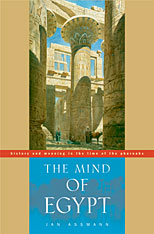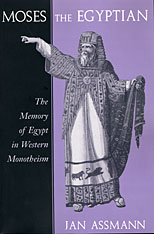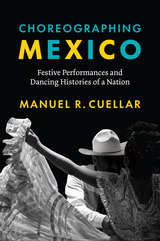
Reviews of this book:
Magnificent' Assmann asks what meaning Egyptians obtained from their own constructions of their history. How did they incorporate the legacy of the past into the present. Using three approaches - archeological, mythic, and epigraphic or iconographic - Assmann takes us a chronological journey, starting with the formation of the unified state in about 3100 BC and going through the three great kingdoms. He ends in the late period with the final whimpers of Egyptian civilization. Assmann has looked closely into the mirror of the ancient intangible with telling effect. Every student of early civilization has something to learn from these pages, which will help cure us of intellectual myopia.
--Brian Fagan, The Los Angeles Times
Reviews of this book:
Assmann is attempting something far more ambitious than all the conventional books on Egypt. What he attempts to do is pen a psychological portrait of Egyptian culture. He asks questions that are normally avoided by ancient historians: What motivated the culture? How did it view the relationship between the individual and the universe surrounding him or her? What explanations did it provide for worldly events and reversals of fortune? The result is impressive. The Mind of Egypt marks the culmination of years of questioning about the past and the ways it can be conceptualized. Jan Assmann is close in some ways to being the Beethoven of Egyptology. The Mind of Egypt is a singular book that will provoke debate for a generation to come. It is essential reading for those who wish to call themselves Egyptologists, and it is an important intellectual contribution to the whole question of what constitutes history and historiography.
--John Ray, The American Scholar
Reviews of this book:
[This book's] aim--to examine the mainsprings of Egyptian civilisation and thereby to provide a 'psychological' portrait of Egyptian culture--is truly fascinating.
--History Today

Standing at the very foundation of monotheism, and so of Western culture, Moses is a figure not of history, but of memory. As such, he is the quintessential subject for the innovative historiography Jan Assmann both defines and practices in this work, the study of historical memory--a study, in this case, of the ways in which factual and fictional events and characters are stored in religious beliefs and transformed in their philosophical justification, literary reinterpretation, philological restitution (or falsification), and psychoanalytic demystification.
To account for the complexities of the foundational event through which monotheism was established, Moses the Egyptian goes back to the short-lived monotheistic revolution of the Egyptian king Akhenaten (1360-1340 B.C.E.). Assmann traces the monotheism of Moses to this source, then shows how his followers denied the Egyptians any part in the origin of their beliefs and condemned them as polytheistic idolaters. Thus began the cycle in which every "counter-religion," by establishing itself as truth, denounced all others as false. Assmann reconstructs this cycle as a pattern of historical abuse, and tracks its permutations from ancient sources, including the Bible, through Renaissance debates over the basis of religion to Sigmund Freud's Moses and Monotheism. One of the great Egyptologists of our time, and an exceptional scholar of history and literature, Assmann is uniquely equipped for this undertaking--an exemplary case study of the vicissitudes of historical memory that is also a compelling lesson in the fluidity of cultural identity and beliefs.

For thousands of years, our world has been shaped by biblical monotheism. But its hallmark—a distinction between one true God and many false gods—was once a new and radical idea. Of God and Gods explores the revolutionary newness of biblical theology against a background of the polytheism that was once so commonplace.
Jan Assmann, one of the most distinguished scholars of ancient Egypt working today, traces the concept of a true religion back to its earliest beginnings in Egypt and describes how this new idea took shape in the context of the older polytheistic world that it rejected. He offers readers a deepened understanding of Egyptian polytheism and elaborates on his concept of the “Mosaic distinction,” which conceives an exclusive and emphatic Truth that sets religion apart from beliefs shunned as superstition, paganism, or heresy.
Without a theory of polytheism, Assmann contends, any adequate understanding of monotheism is impossible.
Best Books for General Audiences, selected by the American Association of School Librarians, and Best Books for Special Interests, selected by the Public Library Association
READERS
Browse our collection.
PUBLISHERS
See BiblioVault's publisher services.
STUDENT SERVICES
Files for college accessibility offices.
UChicago Accessibility Resources
home | accessibility | search | about | contact us
BiblioVault ® 2001 - 2025
The University of Chicago Press









